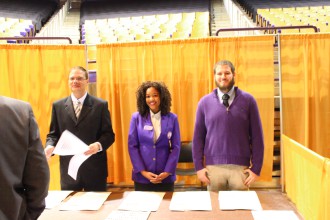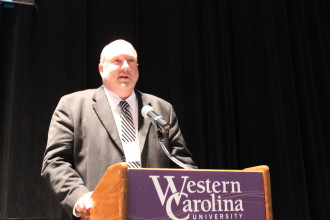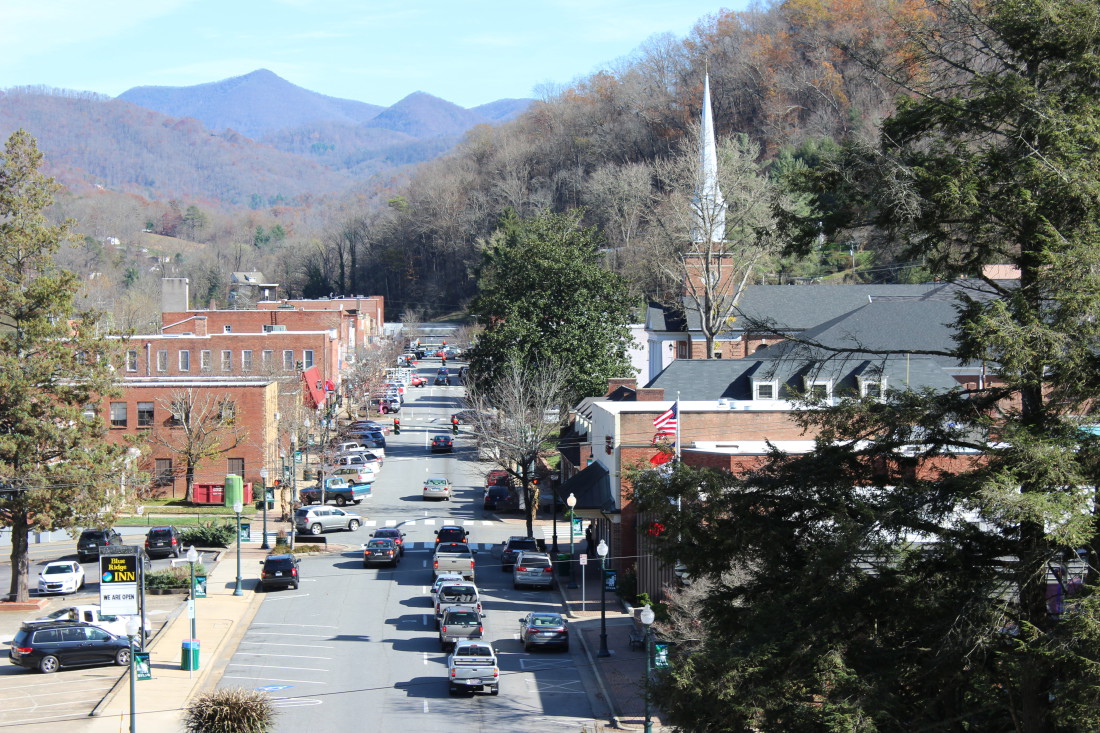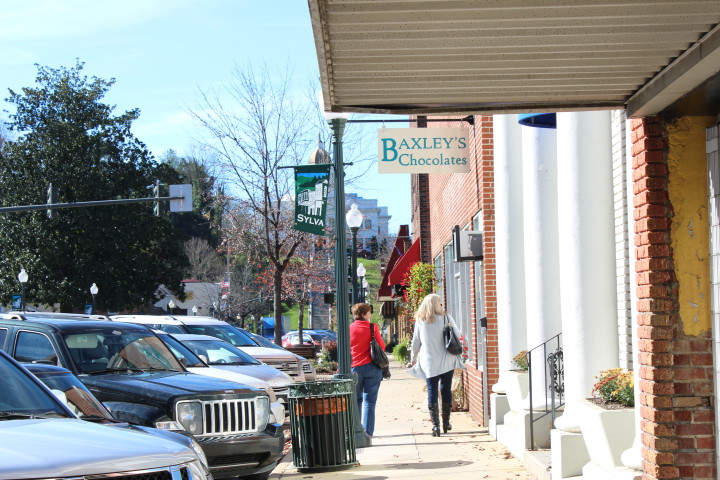By Temi-Tope Adeleye
Western North Carolina University’s third annual tourism conference featured plenty of good news about growth and advice on how to keep tourists coming. But the main message of the day to area towns and about 100 people attending the conference was the importance of collaboration and authenticity, and of avoiding activities that distract from the area’s natural attractions.
The Nov. 10 event, “Lead: Tourism,” focused on local authenticity of communities, revitalizing “Main Street” and capturing the growing tourism market in small towns. Steve Morris, director the Western North Carolina University Hospitality and Tourism Program and the coordinator of the conference, said people fail to realize the touristic potential of the area and the economic impact it can have.
“Tourism isn’t seen as a good job, but [it] serves as a ripple effect for the economy,” Morse said.

Students from Morse’s class presented economic fact sheets for each WNC county showing tourist activity as well as trends in annual tourist spending. According to the data, tourists visiting WNC spent 5 percent more in 2014 compared to the year before. The biggest growth occurred in Buncombe (6.9 percent) and Cherokee (6.4 percent), while the counties of Transylvania, Swain, Polk and Surry all saw increases of less than 3 percent. Tourists in Jackson County contributed an average of just over $46,000 per day in combined state and local tax revenues, and created an estimated 1,660 jobs in 2014.
Morse lauded regional approaches, such as the one adopted by the regional tourism association Smoky Mountain Host, which markets seven counties — Cherokee, Clay, Graham, Haywood, Jackson, Macon and Swain — and the Eastern Band of Cherokee Indians reservation.
Morse explained the value of regional approaches, saying that “most tourists don’t know and don’t care where individual county lines. Most tourists think of visiting a region of NC, not specific areas. Individual county tourism assets are important once a tourist chooses a region to visit, but most choose the region first, then the specific county are area to visit.”

The conference keynote speaker, Berkeley Young of Young Strategies, told the audience that there are no “secrets” to attracting tourists to the Main Street, saying, “They’ve all been done.”
Young, whose company specializes in destination tourism and travel research, planning and strategy, said towns should monitor the ever-changing behavior of their visitors. He also recommended a focus on developing inspired leadership for fostering new businesses and well-executed marketing and management plans. Among the negative practices he discouraged is when towns put too much effort into creating their logos, adding that visitors don’t care which chamber of commerce or department is responsible for anything. Rather, they look at the town as a whole and its natural features, such as surrounding landscapes.
In addition, Young told attendees to beware of “hyper-festivalization,” the trend of holding many unnecessary festivals and events that do not complement the area — a point emphasized by Morse as well.
While hyper-festivalization was mentioned many times throughout the conference, it wasn’t the only recurring topic, as several panelists joked about the need to install convenient restrooms for visitors.
“Keep it clean, keep it neat and open up your damn bathrooms,” said Tracy Brown, executive director of Blowing Rock Tourism Development. He continued, “We must give tourists a sense of place,” a point echoed by the Blue Ridge National Heritage Area’s Executive Director Angie Chandler. This “sense of place” helps visitors feel as if they’re experiencing something new and different — giving them a reason to return.
Sherry Adams, coordinator of programming and technical assistance with the North Carolina Main Street Center, spoke on tourism trends and what drives the economy in North Carolina’s downtowns. She urged attendees to be aware of what was working for other towns, pointing out that “art and culture is driving the economy in North Carolina downtowns, as well as outdoor recreation.”
According to Morse, many towns in WNC do a good job of offering authentic experiences. Waynesville has a variety of retail shops with Mast General Store as an anchor store on Main Street. He noted how unique Cashiers and Highlands are.
“Sylva and Dillsboro offer the most potential and some great ideas are being discussed now to make these towns along the Tuckasegee different and unique,” he added.
“Most experts say there are three elements of success for small towns to fully develop their tourism potential,” Morse said in an email after the conference. “That is: authenticity, authenticity, authenticity. Tourists are looking for authentic towns to experience the authenticity of each different town.”




” Authenticity. Yeah, we can fake that.”